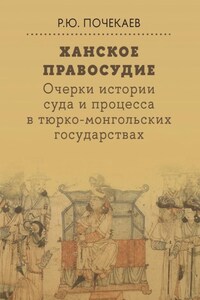Proofreader Lucas James Wiese
© Walentin W. Wasielewski, 2022
ISBN 978-5-0056-1515-2
Created with Ridero smart publishing system
1. Good and evil are not entities, but parameters. The only moral fact is death, and morality is the attitude towards death: everything that leads the system to destruction is evil; everything that overcomes the death of the system is good. The open-question argument is removed without appeal to a naturalistic fallacy.
2. All problems are linked to death. What does not lead to death is not a problem. Any obstacle, barrier, difficulty, or limit is a problem for us only if we know how it can kill us.
3. To understand death as a problem, we need a system of tenses. Any understanding is the transfer of a real event as an abstract symbol from the past to the future, and then the perception of the abstract future in the real present. The only known system that can operate with time is the human language. Human is the only socio-cognitive system that has understood death as a problem.
4. Ethics is a method of development.
5. The purpose of development is to overcome the problem – to obtain freedom from the limitations of death. Beginning with situational problems: hunger, cold, diseases, and external threats; up to the absolute problem: death as such. Overcoming these problems breaks Hume’s guillotine not by logic, but by the phenomenon of will. Overcoming is a transition from a naturally existing limit is to prescribed by a free reason ought.
6. Survival and overcoming death are not the same thing. Survival is the avoidance of death, the selection of forms and behaviors that allow not to face the problem. Death for Natural Selection is a tool of development, and Death for overcoming is a subject of development.
7. Achieving the development goal is the transition of the system to a new qualitative state. A New World and a New Man, free from the problem of death, will have no need for morality and ethics.
1. The act of understanding death gives birth to the essence of human being. Based on this definition, any social-cognitive system that understands death will be human, ranging from any species of living beings to an artificial intelligence.
2. Understanding is possible only in the system of tenses of the language. The system of tenses is the defining quality of human language, unlike all other information exchange systems, from natural RNA/DNA to animal communication systems. In fact, the abstract time machine of language is the mind.
3. Reason makes it possible to relate to death. Understanding and reasoning about what leads to death or what overcomes death provides a human an attitude towards death.
4. The attitude towards death is a dichotomy of good and evil. Thus, good and evil are not entities, but parameters of the relationship to death as a single entity.
5. Ethics is a method of development. Knowing the limit and its parameters, we get the opportunity to overcome the limit. Now, the capabilities of the available tools are never enough for a human. If it is known how the function can be performed better or worse in relation to death, then the development flywheel is launched towards a goal.
6. The goal of development is to overcome death. All problems come down to death. What does not lead to death is not a problem, does not require ethical evaluation, and does not require development and overcoming.
7. By achieving the development goal of the system, the system then transitions to a new quality. After overcoming death there will be no need for an attitude towards death – no need for morality or ethics and no need for development and overcoming. The New World will define new parameters, limits, and essences for the New Man – a Superman.
1. Subject: the phenomenon of awareness of death. Hypothesis: awareness of death is a unique phenomenon in nature, which gave rise to a system of a new quality, human being. Only the awareness of death makes it possible an attitude to death.
2. The attitude to death forms morality as an experience of causes of death and ethics as a method of overcoming death. The ethical method gives humanity a unique ability to overcome problems, causes of death. Thus ethics is a method of development based on a hypothesis of freedom.
3. The wild nature has no awareness of death, no attitude to death and no method of development. Therefore, nature develops through natural selection of random errors. So death is a tool for the development of nature. It is impossible to overcome death as a problem by death as a tool.
4. Humanity is a socio-cognitive phenomenon, a system that has understood the problem of death. So we break the binding of a concept of human to the animal species Homo Sapiens. Any socio-cognitive system that understands the problem of death can be called a human being.
5. The understanding is a system of abstract symbols in the system of tenses. The understanding of any phenomenon necessarily implies the movement of an abstract model of this phenomenon in abstract time relative to reality. Therefore, mathematics without a system of tenses of its abstract symbols is not a full-fledged language.








